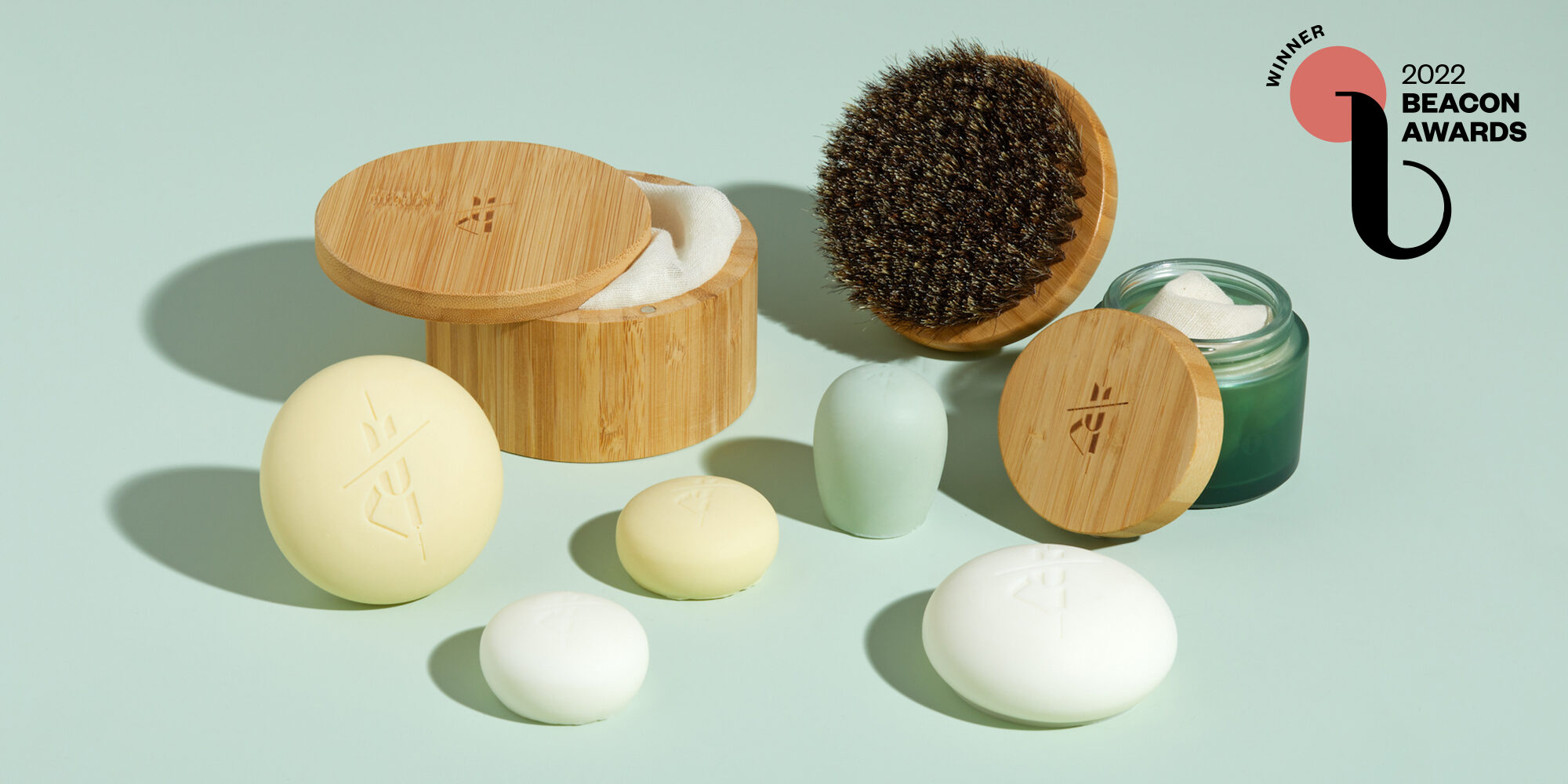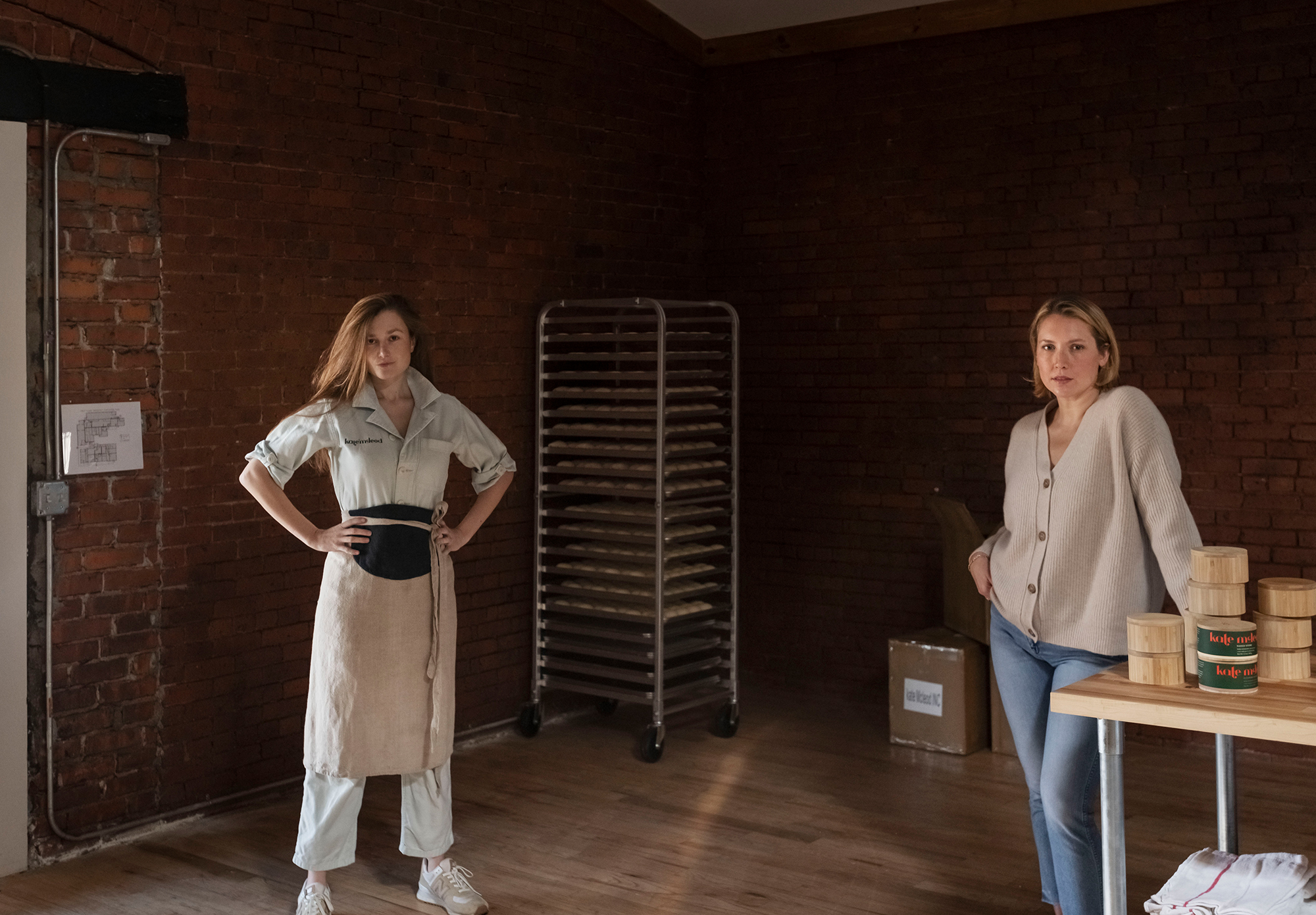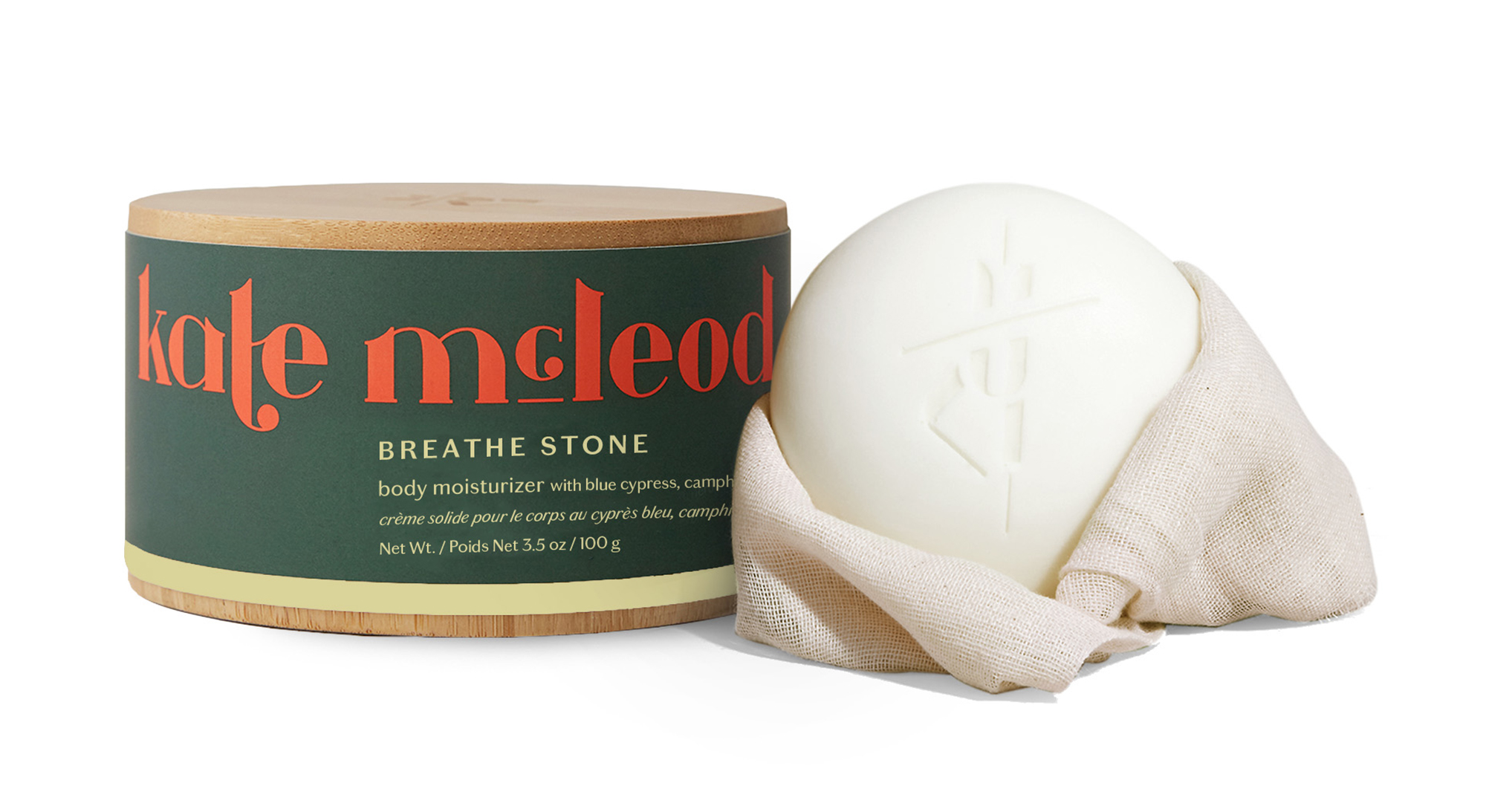
3 Strategies That Paid Off For Skincare And Body Care Brand Kate McLeod
Known for solid moisturizers called stones, Kate McLeod went from cooking products on her kitchen stove in 2018 to her namesake bootstrapped brand generating $5 million in revenues last year. This year, it’s on pace to reach as much as $10 million.
While Kate McLeod didn’t invent solid body care and skincare, the growth demonstrates the brand’s version of premium waterless cleansing and moisturizing products is resonating. It won a Beacon Award this year for Best Brand and has the first solid moisturizer to launch at Sephora. Kate McLeod is sold on QVC, too.
Lisa Price, founder of haircare brand Carol’s Daughter and an expert evaluator for Beauty Independent’s Beacon Awards program, thinks the brand has found an audience because it delivers the unexpected in the body care and skincare category. “They do not color inside the lines,” says Price. “Kate McLeod has successfully and elegantly created the product you didn’t know you needed and now cannot live without.”
Not every consumer catches on to the concept right away, and Kate McLeod has become accustomed to providing education on it. “People would be like, ‘Oh, it’s soap,’ and I’m like, ‘No, it’s solid moisture,’” says McLeod. “I feel like we’ve had that conversation with a lot of people, but we’re also very good at having that conversation now.”
This month, Kate McLeod introduced two new body stones. Forest Stone has notes of hinoki and citrus yuzu. It’s available on the brand’s website and Sephora’s site. Breathe Stone uses peppermint, eucalyptus, camphor and blue cypress to promote relaxation and immunity support. It’s only available on the brand’s site. Kate McLeod has extended from body to facial products with a face stone and to sexual wellness with a sex stone. More category extensions are on deck.
To understand Kate McLeod’s path from cramped Williamsburg apartment kitchen to Sephora, Beauty Independent spoke with McLeod, who identified three strategies critical to the brand gaining traction.

Measured Expansion
After quadrupling revenues in 2021, Kate McLeod spent 2022 building a strong team and infrastructure to pursue aggressive sales targets in 2023. McLeod, a former Goldman Sachs trader, met consultant Nichola Tucker Gray, who shared her passion for body care, through a mutual friend, and brought her on board as co-founder and COO. Tucker Gray has been essential in setting the brand up for expansion by moving its production out of McLeod’s home and securing a third-party logistics service.
McLeod emphasizes she’s interested in intentional, profitable growth that allows Kate McLeod to maintain sustainability practices. The brand has been profitable since 2020. McLeod’s and Tucker Gray’s first hire at Kate McLeod was to shore up its logistics and operational expertise—and it’s been a game changer. “You can’t scale a business with just two people,” says McLeod. “Our first hire was just absolutely instrumental. We needed to free both myself and Nichola from a lot of the [day-to-day] logistics in order to focus more on the business, to branch more into marketing and enable us to grow.”
Kate McLeod didn’t deploy paid marketing during its initial two years. Looking back, McLeod says the strategy ended up being fortunate. She explains, “We have taken our time, gotten to know our customers and our product, and thankfully have been able to scale right alongside the increased demand.”
At the outset, Onda Beauty, the clean beauty retailer co-founded by Naomi Watts, picked up Kate McLeod. McLeod walked into its Tribeca location, pitched the buyer, and the store sold out of the brand just two days after stocking it. Subsequently, Kate McLeod was featured in Watts’ Top Shelf article published by content destination Into the Gloss.
To bolster its holiday sales early on, Kate McLeod had a booth at New York City’s Columbus Circle Christmas Market. “I was out there seven days a week, 10 hours a day selling my product, but you know what? I sold it to people across the entire globe, and I learned what resonated and what didn’t,” says McLeod. “I learned about my customer and how I talk through this new form, and then we were ready to go on paid social, on to QVC.”

In-House Production
At the beginning of 2020, McLeod and Gray opened a production facility and workshop in New York’s Hudson Valley. They called it Butter Atelier in reference to cocoa butter, the main ingredient in Kate McLeod’s body stones. Not every brand can bring manufacturing in-house, but, for Kate McLeod, it affords control over inventory flow and the ability to sidestep many of the supply chain snarls that have plagued other brands in the wake of the pandemic.
McLeod elaborates that cocoa butter can burn easily and, at its in-house facility, Kate McLeod’s handle on manufacturing allows it to temper its formulas correctly to achieve solid formats without relying on ingredients it deems additives such as shea butter or beeswax that can cause stickiness. The idea is for the body stones to melt and and glide on skin.
Thanks to its production efficiencies, Kate McLeod can get a new product to market in less than two weeks. “We are becoming experts at manufacturing solids,” says McLeod. “These key pieces of machinery have enabled us to scale to the point where we’re doing QVC, we’re doing Sephora, we’re still managing our DTC, and we’re only operating at a very small fraction of what we could be doing if we were pushing it the whole way.”
Furthermore, Kate McLeod estimates its employment of in-house manufacturing and its drive to source packaging when possible from American suppliers cuts down its transportation-related carbon emissions by upwards of 50%. The brand recently became certified climate neutral and is a member of 1% for the Planet. Kate McLeod works with the sustainability software platform Bluebird to measure the impact of its supply chain and product choices in order to continually reduce emissions and waste.
Retail Partnerships
To stick to lean budgets for Kate McLeod’s QVC and Sephora launches, McLeod and Tucker Gray contributed to the marketing strategies and wrote advertising copy themselves. The brand spent slightly more than $50,000 on the launches. Currently, retailers are responsible for 20% of its sales and having a retail presence has been a boon for awareness. Small boutiques have been integral to its retail network.
On the bigger side, Kate McLeod’s Daily Stone debuted on Sephora’s site as part of the beauty specialty retailer’s Clean + Planet Positive program in April. The brand could amplify its presence at Sephora going forward. McLeod says, “I love working with Sephora, and they have been an amazing partner to us, so we are very interested in exploring all opportunities to work with Sephora.”
QVC has been Kate McLeod’s partner for over two years. The brand sells out during each appearance on the home shopping network. Tucker Gray says, “Our strong sellout performance on QVC has led to the wholesaler being more willing to test selling our product at MSRP versus using discounting strategy, showing that premium brands can command more spend from the QVC customer.”





Leave a Reply
You must be logged in to post a comment.